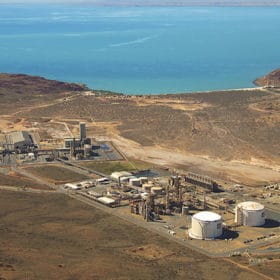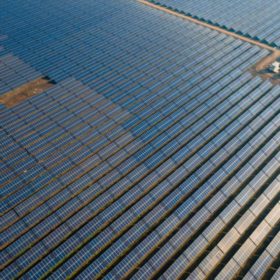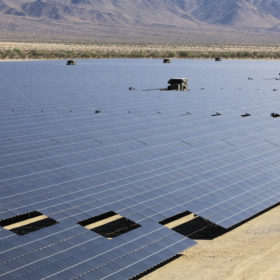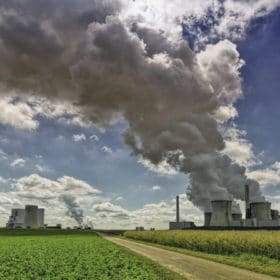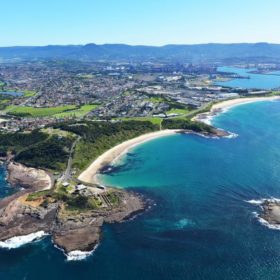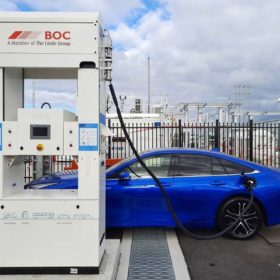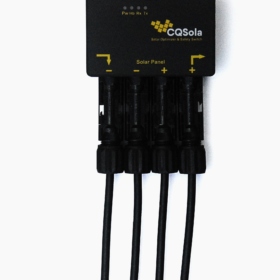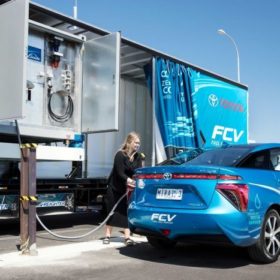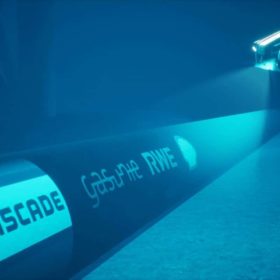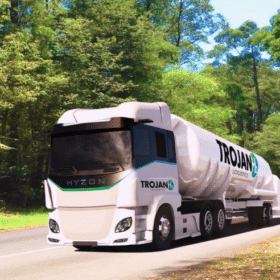$103 million flows from ARENA to commercial ‘green’ hydrogen projects, despite concern around gas couplings
Three commercial-scale hydrogen projects have been conditionally approved for $103.3 million in funding from the government’s Australian Renewable Energy Agency, including Western Australian green ammonia project from Engie, as well two hydrogen + gas blend projects from ATCO and Australian Gas Networks respectively.
Canadian investor Amp Energy bets big on Renewable Energy Hub of South Australia
A clean energy investment firm based in Canada but already with a growing portfolio in Australia has set out an expansion plan in excess of $2 billion and 1.3 GW for the creation of a Renewable Energy Hub of South Australia, including at least three massive solar projects, two of which would supply South Australia’s green hydrogen ambitions.
First Solar & Nel Hydrogen to develop integrated PV-hydrogen power plants
First Solar and Nel Hydrogen Electrolyser AS have announced they will collaborate to develop power plant control and other supervisory systems as part of a broader plan to build integrated photovoltaic-hydrogen power plants.
‘I know a lot of people hate this’: ESB Chair explains why we need a coal subsidy
In its first briefing following the publication of its Post 2025 Market Design Options Paper, the Energy Security Board’s Independent Chair, Dr Kerry Schott, spoke candidly about what will inevitably be a “messy” transition to renewables.
First green hydrogen + gas plant to be built in NSW, ‘kick starting’ hydrogen industry to coincide with loss of major dispatchable asset
EnergyAustralia is set to build a 316 MW green hydrogen + gas peaking power plant in New South Wales by 2023, in time for the closure of Liddell coal-powered plant, which is one of the country’s biggest dispatchable electricity generators.
Victoria’s roadmap to halve emissions by 2030 includes EV subsidy and renewably powered government operations
Victoria is now offering subsidies on electric and hydrogen fuel cell cars and will power its government operations with 100% renewable energy by 2025 as part of its long awaited Climate Change Strategy. The plan essentially offers a roadmap for the state’s 2050 net zero emissions target, including a number of nearer term goals.
How to retrieve 36% in power losses at the solar-to-electrolysis end of hydrogen production
An Australian innovation, the unassuming-looking CQSola power controller has under-the-hood smarts that could significantly cut the cost of hydrogen produced using solar energy.
Smart Energy Council reveals list of partners for its green hydrogen certification scheme
Australian peak body, the Smart Energy Council, has this morning revealed the details of the initial global and domestic partners for its hydrogen Zero Carbon Certification Scheme. The scheme seeks to provide a guarantee of origin for hydrogen, ammonia and other derivative products like steel, in preparation of Australia becoming a global hydrogen export hub.
Europe moves on green hydrogen, developing offshore pipeline as Germany adds electrolysis capacity
Germany’s first offshore hydrogen pipeline is being planned by multiple partnering companies and is expected to be commissioned in 2035. Meanwhile, Siemens is planning hydrogen projects in a 5 MW to 50 MW range for industrial applications and a consortium of conglomerates is maintaining pressure on EU to develop green hydrogen.
Melbourne company signs deals to position itself as Australia’s leading carbon-free green hydrogen transporter
Melbourne-company Trojan H2 Logistics has today announced two separate industry deals to deliver both fuel-cell hydrogen transport trucks as well as hydrogen refuelling stations along Australia’s East Coast.
